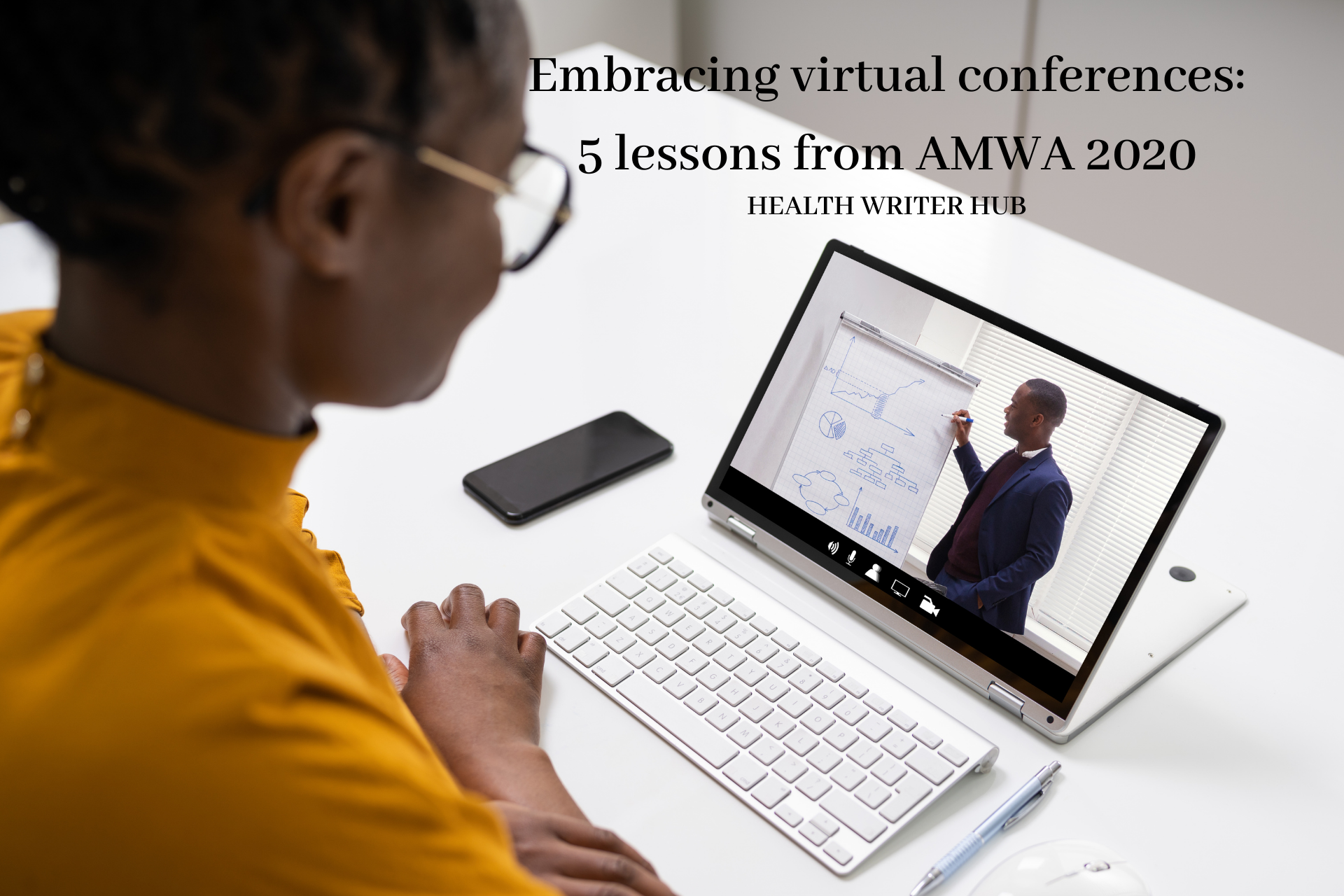 We all miss our favorite parts of in-person conferences, whether it’s the adventure of travel or the face-to-face interaction, but professional growth can still happen virtually.
We all miss our favorite parts of in-person conferences, whether it’s the adventure of travel or the face-to-face interaction, but professional growth can still happen virtually.
Medical writers found value in a virtual conference venue
The American Medical Writers Association (AMWA) held their annual conference online in October 2020, and it was both a roller coaster and a valuable learning experience. I asked colleagues what they liked about the online platform.
Writers want to develop their professional skills
Yoon Jung Lee, freelance medical translator/editor and PharmD/PhD in pharmaceutical sciences, shared her experience. “It was my first time attending an AMWA conference. Overall, this AMWA conference helped me understand trends in medical communications and develop professional skills through various educational sessions and roundtable discussions.”
As a first-time attendee, my view was similar. I also found places to develop my medical writing and editing skills.
Writers appreciate flexibility
Christine Zink, MD and freelance medical writer, appreciated the flexible schedule of the virtual conference. “As a busy mom, physician, and writer, I have limited time in the number of conferences that I can attend in person. The virtual platform offers fantastic flexibility and allows me to participate when I might not have been able to otherwise.”
I also found the freedom to make my own schedule helpful, as I was able to complete tasks at home in between sessions.
Writers will attend accessible virtual conferences
Nat Bourre, healthcare communications consultant and owner of Marketing 4 Health Inc., commented on accessibility. “Virtual conferences of all kinds are proving to be more inclusive than physical conferences. The AMWA conference is no exception. For example, people with disabilities or without the ability to travel were able to attend the AMWA online conference this year, thus enriching the conference with greater diversity of attendee experiences and practices.”
I agree that virtual conferences are a good start for expanding access. I was happy to see both freelance and employed health writers contributing to the discourse regardless of their ability to take time off.
So you have a chance to learn and network at a virtual conference, but how do you actually make it happen?
5 tips to make the most of your virtual conferences
1. Use your free time constructively
Less time spent traveling means more downtime for organizing research and outreach. When I would have been walking from my hotel room to a presentation, I posted on social media about the session I was about to attend (and tagged the presenters). I even made a connection on Twitter with the AMA Manual of Style.
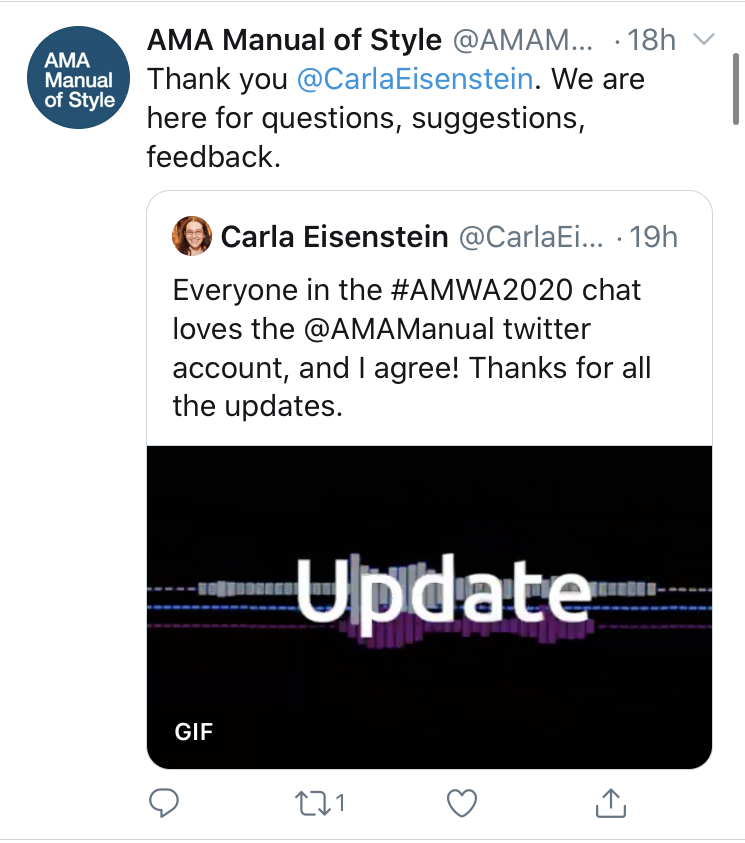
2. Plan for an asynchronous schedule
I had to miss a session on medical infographics, but I can go back and watch it soon (the platform keeps recordings up until December 22). Without the notetaking pressure of an unrecorded presentation, I found time to reach out to speakers with better questions.
Like many virtual conferences, AMWA pre-recorded a lot of sessions which meant questions were posed in the chatbox throughout the presentation. I appreciated how this setup allowed more questions to be answered.
3. Find spaces for formal and relaxed communication
The language you use to ask questions at a conference is probably formal compared with the language you use with old friends over coffee. Recreating that dichotomy can signal to colleagues that you understand online professionalism.
The platform that AMWA used, pathable, made spaces for private messaging between attendees and daily questions on a discussion board. I decided to keep my messages formal on discussion boards and informal on Zoom chats and social media posts.
4. Make your own networking opportunities
Some networking meetings were already set up, such as happy hours for each regional AMWA chapter. I was looking for something in the morning, though, and was happy to see this tweet from Abbie Roth.
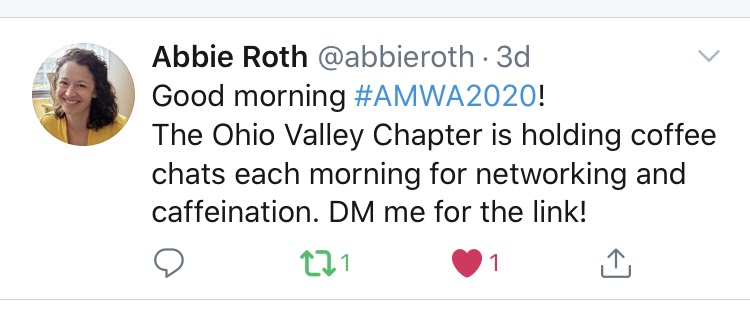
I attended the coffee chat, and I was inspired to put together a similarly informal space for new attendees. After making a quick banner, I created an unlisted LinkedIn group and started inviting people. On Thursday morning, 25 people joined me for a relaxed morning chat over coffee.
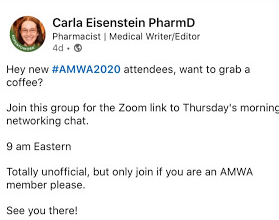
It helped that experienced AMWA members like Jim Cozzarin and Lori De Milto encouraged my idea to create the group. With leaders on board, taking a few leaps is not as scary.
5. Treat your LinkedIn profile like your business card
Another situation where a leader encouraged networking was during a roundtable discussion focused on job search advice, which can be applied to employed or freelance writing jobs.
The presenter suggested that we always carry a business card (hopeful advice for a post-Covid world), and I was able to use that as an opportunity to share my LinkedIn account in the Zoom chat.
At a virtual conference, my LinkedIn profile views spiked immediately – it would have been much slower in person. We all got to skip the time-consuming, intermediate step of looking people up on LinkedIn from names on business cards.
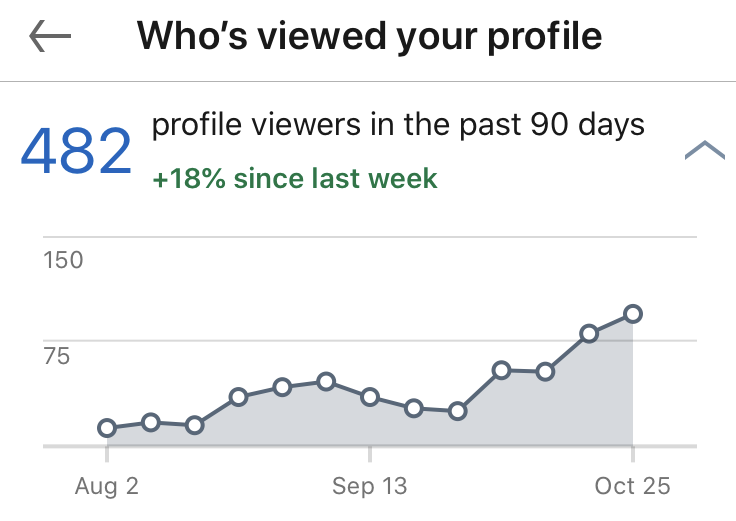
Whether or not you made it to this conference, you can follow the escapades of me and the other attendees on the hashtag #AMWA2020 on Twitter and LinkedIn.
